For cold process soap making, you'll need a reliable thermometer that reads 70-75°F for lye and 100°F for oils. Digital thermometers offer precise readings with waterproof probes, while infrared options provide quick, non-contact measurements for safety. Beginners can start with affordable digital models (±2°F accuracy), while advanced crafters might prefer high-end infrared thermometers with adjustable settings. Your soap quality depends greatly on temperature precision across each batch.
Why Temperature Precision Matters in Cold Process Soap Making

When you're making cold process soap, temperature isn't just a detail—it's essential to your success. The chemical reaction between lye and oils depends on precise temperature control, directly influencing whether your batch succeeds or fails.
Your lye solution needs cooling to 70-75°F while oils require heating to about 100°F for ideal mixing. Without accurate measuring, you risk improper saponification, leading to texture problems and pouring difficulties.
A reliable Digital Kitchen Thermometer becomes your most valuable tool, allowing you to monitor both components simultaneously. Effective temperature management prevents common issues like overheating that can cause soap defects.
As you gain experience, you'll find that consistent precision not only improves your current batch but enhances your overall soap making skills and understanding of the craft.
Digital Thermometers: Features and Benefits for Soap Crafters

Digital thermometers stand out as essential tools for any serious soap crafter, offering precision that directly translates to batch quality. When you're measuring the temperature of your oils and lye solution, these devices provide accurate temperature readings within seconds.
| Feature | Benefit |
|---|---|
| Wide range (-58°F to 572°F) | Works for all soap making processes |
| Long, waterproof probe | Safe use in high-temperature environments |
| Fast response time | Instant readings for efficient workflow |
| Compact design | Easy to handle during mixing stages |
| Clear digital display | No guesswork when reading temperatures |
Models like the ThermoPro TP03 and Habor 022 Kitchen Thermometer for Cooking are particularly well-suited for beginners. They're incredibly easy to use and help you maintain the precise temperatures needed for successful cold process soap making.
Infrared Thermometers: Non-Contact Solutions for Safety

For soap makers concerned about safety during high-temperature processes, infrared thermometers offer an elegant non-contact solution that eliminates the risk of burns.
These essential tools provide quick and accurate temperature readings of melted oils and waxes with a typical response time of just 2 seconds.
With an impressive range of -58°F to 716°F, you'll easily measure the surface temperature of any soap-making ingredient.
Many models feature adjustable emissivity settings to account for different materials, ensuring precision across various surfaces.
While infrared technology can't measure internal temperature, it excels at monitoring external temperatures during critical phases.
The compact design typically includes laser targeting for pinpoint measurement accuracy, making these thermometers both practical and precise for today's cold process soap makers.
Analog Options: Reliability in Traditional Soap Making

While digital options dominate modern soap making, analog thermometers continue to offer unmatched reliability for traditional cold process artisans. With their 1.75-inch diameter dials, these cost-effective tools provide accurate temperature readings for both lye and oil temperatures once you've practiced using them.
| Feature | Benefit |
|---|---|
| Cost-effective | Perfect for beginners on a budget |
| Durability against heat | Withstands soap making conditions |
| No batteries required | Always ready when you need it |
| Simple operation | Easy to learn and master |
Many experienced soap makers start with analog thermometers to develop an intuitive understanding of temperature's effects on batter consistency. Their simplicity doesn't compromise functionality—just remember to clean them regularly to maintain accuracy. You'll appreciate how these robust tools help you build foundational skills before investing in more advanced equipment.
Temperature Ranges and Accuracy Requirements for Saponification

When making cold process soap, you'll need to focus on the critical temperature zones of 70-75°F for lye solution and 100°F for oils to achieve proper saponification.
Your thermometer should offer accuracy within 1-2 degrees in these ranges rather than an unnecessarily broad temperature spectrum that sacrifices precision.
Understanding these specific requirements will help you choose a thermometer that maintains consistency in your soap batches, whether you're working with standard recipes or experimenting with temperature-sensitive additives.
Critical Temperature Zones
Success in cold process soap making hinges on your ability to manage vital temperature zones with precision.
When monitoring your soap ingredients, you'll need to maintain lye solutions at 70-75°F for safety, while heating oils to approximately 100°F until fully melted and clear. The ideal saponification range typically falls between 90-110°F, where proper chemical reactions occur.
- Digital infrared thermometers provide instant-read temperature measurement without contaminating your ingredients
- Even small deviations of 5-10 degrees can dramatically alter your soap's texture and curing time
- High-accuracy thermometers (±1°F) are essential for consistent results batch after batch
Using reliable thermometers with absolute measurement precision helps you navigate these vital temperature zones confidently, especially when combining lye and oils—the most essential moment requiring careful temperature control.
Precision vs. Range Needs
Selecting the perfect thermometer for soap making requires balancing precision with appropriate temperature range capabilities. Your thermometer must accurately measure both cold lye solution (70-75°F) and hot oils (around 100°F) to achieve ideal saponification.
| Thermometer Type | Precision Benefits |
|---|---|
| Digital | ±2°F accuracy for reliable soap batter consistency |
| Infrared | Contact-free measurements of hot oils and fats |
| Dual-probe | Simultaneous monitoring of lye and oil temperatures |
| Wide-range | Coverage from -58°F to 572°F for all soap making needs |
| Quick-read | Faster temperature stabilization for efficiency |
As a beginner, you'll find a digital thermometer offers the best combination of accuracy and ease of use. The precision guarantees your ingredients reach the ideal temperature window, while adequate range capabilities allow you to monitor the entire soap making process with confidence.
Waterproof and Chemical-Resistant Thermometer Models
Because cold process soap making involves corrosive ingredients like lye and various oils, investing in a waterproof and chemical-resistant thermometer is crucial for both accuracy and longevity. The Habor 022 digital model offers excellent protection against moisture while providing reliable temperature readings throughout your soap-making process.
- Look for thermometers specifically rated for chemical resistance to guarantee they won't degrade when exposed to lye.
- Consider infrared options like the Etekcity Model 1022 for quick, non-contact readings when you're handling multiple batches.
- Choose models with a long probe design to keep your hands safely away from hot oils while still getting accurate measurements.
You'll find that waterproof thermometers not only last longer but also maintain their accuracy even after repeated exposure to the harsh substances in your soap-making routine.
Budget-Friendly vs. Premium Thermometer Options
While waterproof features protect your investment, the price point often determines which thermometer ultimately makes it into your soap-making toolkit.
Budget-friendly thermometers, like analog instant-read food thermometers at around $12.28, offer durability and effectiveness for basic temperature management in cold process soap making.
Premium options, particularly infrared thermometers starting at $32.99, deliver quick non-contact readings with advanced capabilities such as adjustable emissivity settings and faster response times, enhancing accuracy during soap making.
These features guarantee more consistent results for serious crafters.
As a beginner, you'll benefit from starting with an affordable digital thermometer to establish fundamental temperature monitoring skills.
However, as your soap making advances, you might find investing in high-end models worthwhile for the precision they provide.
Your choice ultimately depends on your specific needs and desired level of accuracy.
Multi-Purpose Thermometers for Diverse Craft Applications
Crafters who seek versatility beyond soap making will find multi-purpose thermometers to be invaluable tools in their creative arsenal. Infrared models let you check surface temperatures without contact, perfect for monitoring soap, lotions, and balms throughout their cooling phases.
- Digital instant-read thermometers provide precise readings for both lye solutions (70-75°F) and oils (around 100°F), ensuring your ingredients combine at ideal temperatures.
- Models like the Etekcity Infrared Thermometer offer impressive range (-58°F to 1022°F), making them suitable for diverse crafting applications.
- Analog thermometers provide cost-effective temperature management options for beginners learning the basics of cold process soap making.
When you're crafting multiple products, investing in versatile thermometers saves both money and workspace, while ensuring consistent quality across your creative endeavors.
Frequently Asked Questions
What Is the #1 Recommended Thermometer?
Your #1 recommended thermometer is the ThermoWorks Industrial IR with Circle Laser. You'll appreciate its accuracy, comfortable grip, wide temperature range, and precise laser targeting. It's worth the $89 investment.
What's the Most Accurate Thermometer on the Market?
The most accurate thermometer on the market is the ThermoWorks Industrial IR with Circle Laser. You'll appreciate its exceptional accuracy of ±2°F and impressive temperature range of -58° to 1022°F for your measurements.
Which Thermometer Should Be Phased Out?
You should phase out glass candy thermometers in your soap making. They're prone to breakage, risking injury and contamination, while offering less accuracy than modern alternatives like digital or infrared thermometers.
Which Thermometer Has the Highest Accuracy?
You'll find the ThermoWorks Industrial IR with Circle Laser offers the highest accuracy at ±2°F under controlled conditions. Its broad temperature range (-58° to 1022°F) and adjustable emissivity settings enhance its precision markedly.
In Summary
You'll find that investing in a quality thermometer transforms your soap making from guesswork to precision crafting. Whether you choose digital, infrared, or analog options, prioritize accuracy, durability, and readability for your specific needs. Remember, the right temperature tool doesn't just improve your soap quality—it saves you time, materials, and frustration. Choose what works for your budget and crafting style, then enjoy the consistent results.
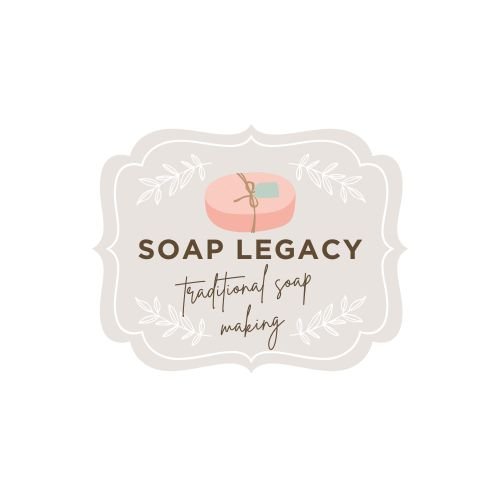
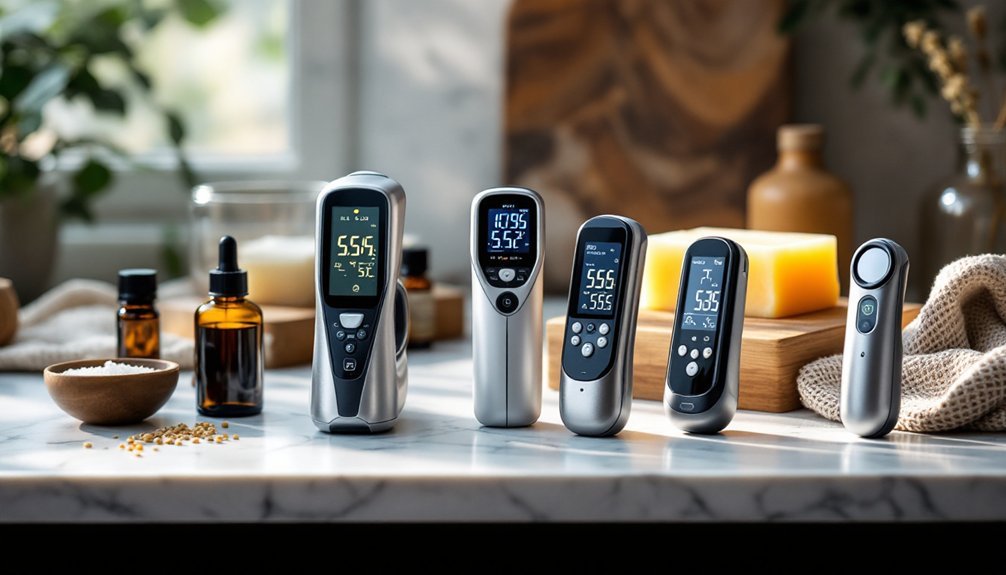
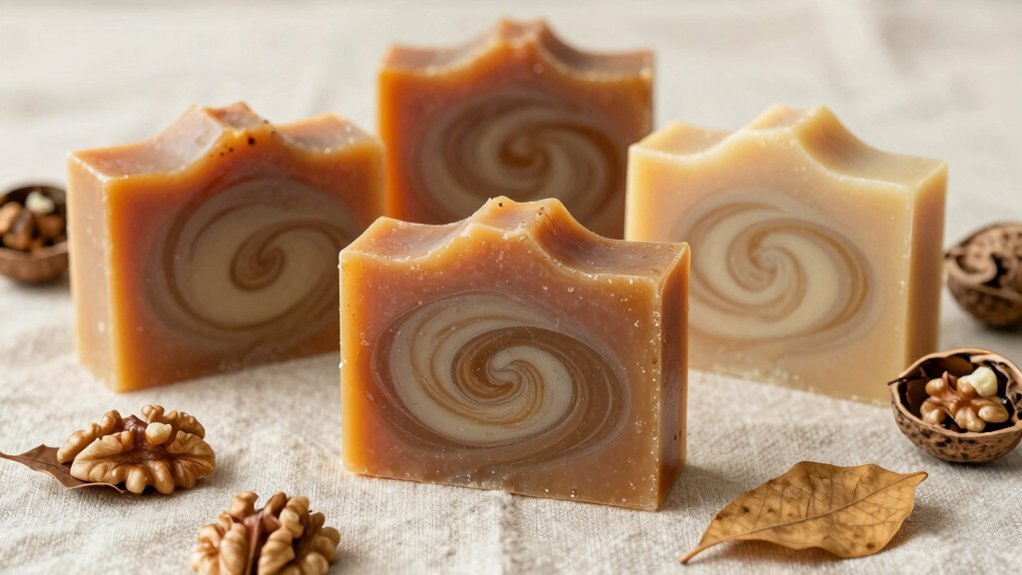
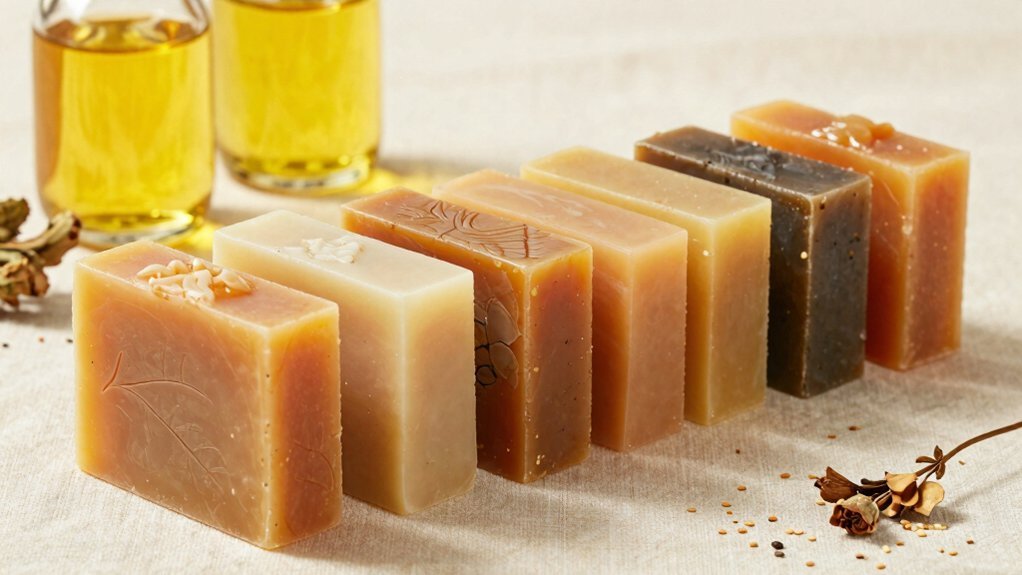
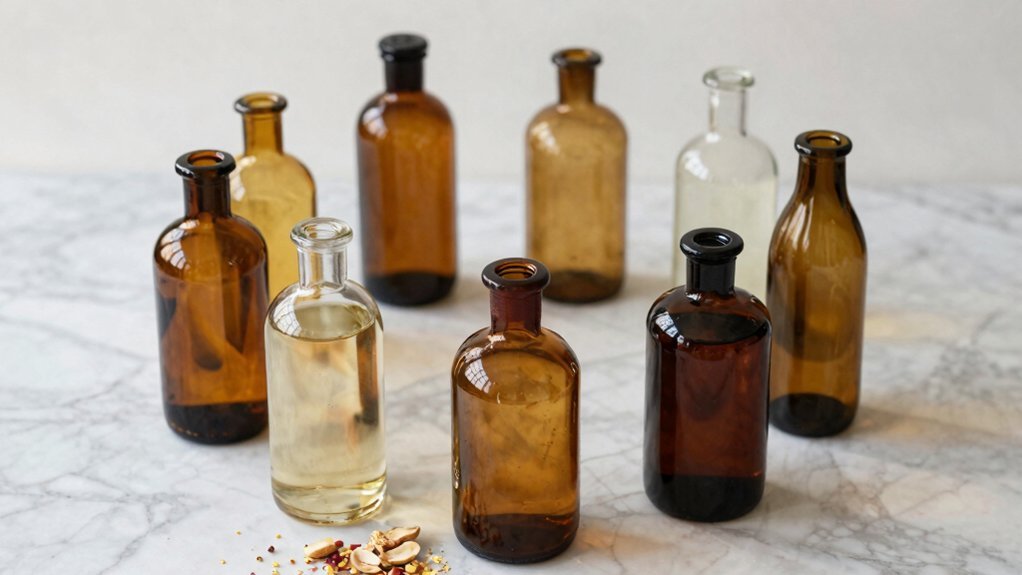
Leave a Reply